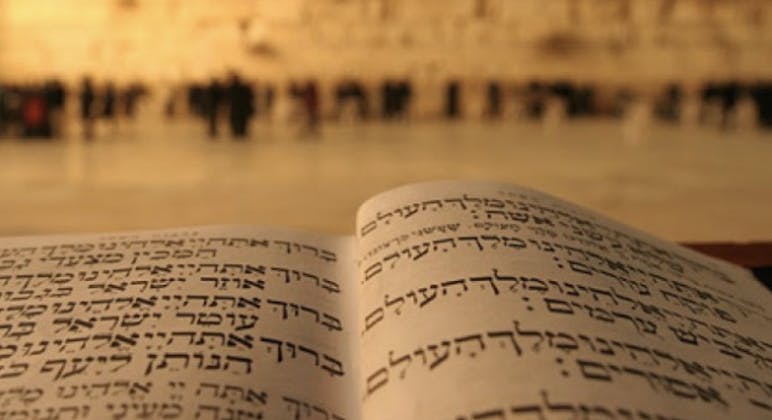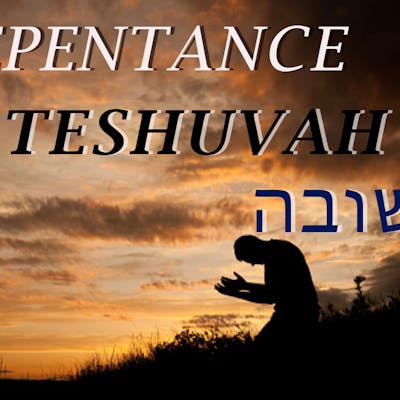
JESUS-YESHUA THE LIVING TORAH
Teaches & observes the written Torah
(Article excerpt from 2016 Teshuvah Prayer Guide,pg. 62)
Think not that I have come to destroy the Torah/Teachings, or the Prophets/Tanakh: I have not come to destroy, but to fulfill. For truly, I say to you, until heaven and earth pass away, not a jot, not a tittle, will pass from the Torah….Matt. 5:17-18
INTRODUCTION
For centuries the controversy between the Mosaic Law and New Testament Grace has been a theological battlefield. There are multiple reasons, such as Hebrew versus Greek translation, and culture. We are indebted to Dr. William Morford’s exegesis of Law versus Torah in his One New Man Bible, “Our Christian translators nearly always translate both Torah and Nomos [Greek] as Law, even though that is not the meaning for either the Hebrewor the Greek. Torah means teaching or instruction, not law. Nomos, the Greek word for Torah, frequently translated LAW, refers to anything that has been established and can mean law, but would more accurately be translated Torah (Teaching) ninety percent of the time in the New Testament.” p.1804We are reminded that Jews wrote the Bible; they spoke to a Jewish audience who knew the Hebrew language, life, and culture. In the Hebrew Bible, the word TaNaKh (Old Testament) is an acronym formed from the first letters of: Torah/five books of Moses, Nevi’im/Prophets, Kethuvim/other writings, Psalms, Proverbs, etc.
To gain greater insight into Y’shua’s role in the Torah/Tanakh and set the stage for His teaching in Matt. 5:17-18, we will revisit the Apostle John’s three poignant revelations. He illuminates the magnitude of Y’shua’s call and ministry viewed through a Jewish lens.
- In the beginning was the Word/Logos, and the Word was with Elohim/God, and the Word was Elohim/God, Jn. 1:1. The Apostle John reveals that the Word/TanakhIS Yahveh Elohim, that is, the Word and Yahveh Elohim are One and the Same.
- The Word/Old Testament became flesh and dwelt among us….Jn. 1:14. In verse 14, John reveals this amazingly awesome revelation: the spoken and written Word/Old Testament became Man, and dwelt with His people, the Jews. John makes it clear Y’shua IS the Word of The Father; He IS the Living Tanakh/Old Testament—wrapped in flesh.
- The law was given through Moses; grace and truth came through Y’shua Messiah, Jn. 1:17. Since the creation of Adam, 2,400 years transpired before the Hebrew people reached Mt. Sinai. In all of those hundreds of years before the call of Abraham, Yahveh did not find one person worthy of receiving His Torah/Teachings. When He found Abraham, from whom the chosen people descended, Yahveh cut a blood Covenant with Him, Gen. 15. At that time, He revealed it would be 400 years before He could give Abraham’s descendants the Promised Land. The Covenant also disclosed that the Hebrew people would go through a period of great darkness, Gen. 15:13. After 200 years of slavery, the Israelites were delivered out of Egyptian bondage. They arrived at Mt. Sinai 50 days later to experience the first Shavuot/Pentecost. At Mt. Sinai, Yahveh spoke His Word/Torah to Moses who wrote and gave it to the Israelites. Fifteen hundred years after Moses, in the fullness of time, Yahveh sent His Living Word/Torah, Y’shua wrapped in Flesh to the lost sheep of the House of Israel; He walked among them full of Grace and Truth.
Y’SHUA TEACHES THE TORAH - HE CANNOT DENY HIMSELF
Through His words, teachings, and actions, Y’shua displayed His full and perfect commitment to the Torah. A broad spectrum of academia has written on Y’shua and the Torah, digging deeply into the Hebraic soil of Y’shua’s ministry.Jewish scholar, Geza Vermes, asks, “Did Jesus reject these [Mosaic Laws]? The Synoptic gospels, our primary witnesses, give no support to such a theory.” In summing up his view of Y’shua in the Gospels, Vermes observes, “The only logical inference is that Jesus freely insisted, even in a purely ritual context, on strict adherence to the Torah.” The Religion of Jesus The Jew, pp. 11, 18Jewish believer and scholar, Dr. David Friedman in They Loved the Torah, states “Matthew 5:17-19 is a powerful teaching that cannot be ignored by any serious student of the Torah-New Testament relationship. Y’shua clearly taught on the time span of the Torah’s validity: ‘Don’t think that I have come to abolish the Torah or the Prophets. I have not come to abolish but to complete. Yes, indeed! I tell you that until heaven and earth pass away, not so much as a yud or a stroke will pass from the Torah—not until everything that must happen has happened.’ ” p. 30
Y’shua taught that His influence would be one of strengthening, not weakening, the Torah. Dr. Friedman points out, the Greek word used in the text for complete is plerosai. It carries a sense of both fulfilling and establishing the proper meaning of the Torah. Israeli scholar David Bivin in Understanding the Difficult Words of Jesus has accurately paraphrased Y’shua’s words:“Never imagine for a moment, Jesus says, that I intend to abrogate the Law [Torah] by misinterpreting it. My intent is not to weaken or negate the Law [Torah], but by properly interpreting God’s Written Word I aim to establish it, that is, make it even more lasting. I would never invalidate the Law [Torah] by…removing something from it through misinterpretation. Heaven and earth would sooner disappear than something from the Law [Torah]. Not the smallest letter in the alphabet, the yod, nor even its decorative spur, will ever disappear from the Law.” p. 155The foundation Y’shua has laid in Matt. 5:17-19 is one that establishes His love for His Father’s Word and Ways which the Torah clearly reveals. As John Fischer noted in Jesus and Early Judaism, “Matthew 5:17-19 is the crucial passage in understanding Jesus’ perspective. In it He uses the term ‘fulfill’ [plerosai] to describe His relationship to the Law [Torah]…here it implies to cram full, bring to full expression, show forth the intended meaning. The idea is to give fullness and provide true meaning, as opposed to destroying, overthrowing or abolishing.” p. 23
REFLECTIONS — Y'SHUA / TANAKH — THE WORD OF THE FATHER
In recent years, there has been a movement among believers to take another look at the Torah and its place in the lives of those who trust in Jesus/Y’shua. In the midst of this awakening, there are also an increasing number of Jewish voices calling believers to examine our anti-Torah position in light of Jesus/Y’shua’s words in Matt. 5:17-19. Dr. David Friedman is one of those Jewish voices helping to awaken believers to reconsider their Biblical position on Torah. In his book, They Loved the Torah he sets forth, “The Torah occupied a central place in the earthly life of Yeshua the Messiah, as well as the lives of all of His followers, including Sha’ul (Paul) of Tarsus.” The Apostle Paul was Torah observant, as were all of Y’shua’s disciples. If Y’shua were not Torah observant, the disciples would not have followed Him. In Matt. 8:19 we see a Torah teacher approaches Y’shua saying, Rabbi, I will follow You wherever You go. If Y’shua were not Torah observant, no other Torah teacher would have followed Him or honored Him with the title of Rabbi. Matthew, as well as the other three gospels, fully validates Y’shua’s teaching and observance of Torah.
Matt. 24:12 holds a profound insight in relation to the End Days. In the passage Y’shua was teaching on the signs of the end of the age/acharit hayamim. Y’shua states, Because iniquity shall be multiplied, the love of the many shall wax cold. The Complete Jewish Biblebrings a thought provoking translation: Many people’s love will grow cold because of increased distance from Torah. How gracious of our Father to awaken us to Torah as we see Messiah’s Day approaching.
The gospels portray Messiah as the Word of the Father, Tanakh. He stated, My teaching is not Mine, but His who sent Me, Jn. 7:16. For I have not spoken on My own authority, but the Father who sent Me has Himself given Me…what to say and what to speak, Jn. 12:49. Whoever does not love Me does not keep My words. And the word that you hear is not Mine but the Father’s who sent Me, Jn. 14:24.



